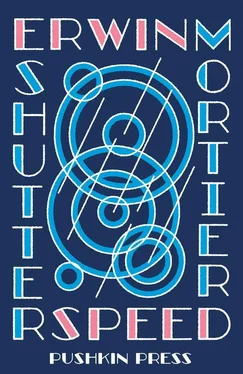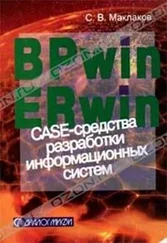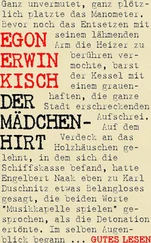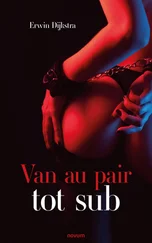‘We never bought any babbies,’ said Uncle when I pressed him to tell me more. ‘Your aunt and me, we got one free, gratis, for nothing. That was you.’
He removed the stopper from the decanter of port wine, because it was Sunday, and poured himself a generous drink. Then he took a smaller glass and poured a dram for me — after all, I had taken my First Communion and was no longer in short trousers, so to speak.
Aunt came in from the kitchen. ‘Oh, Werner,’ she wailed, ‘do you really think that’s the first thing you should teach him?’ Shaking her head, she took the soup plates from the dresser and set them on the table.
Uncle Werner gave me a knowing wink, and when Aunt returned to the kitchen he topped up my glass. ‘A feller has to learn to drink, so he can have a few on Sunday …’
Having a few drinks meant that the world spun around and you felt like a lord. The port had a cloying sweetness that stuck to the roof of my mouth and left a warm trail through my gullet down to my stomach.
‘Mind you, we did do the odd bit of shopping in our time,’ Uncle grinned. ‘Still do, now and then. But we never have enough money. The babbies lie there in the shop in their wicker baskets, wearing pink and blue caps. But you’re not allowed to choose. It’s take it or leave it.’
‘He’s having you on,’ Aunt called from the sink. She tipped the potatoes into the colander, the steam from the kitchen curling along the rafters into the room. ‘If it was that simple …’
I knew he was having me on. In the book Mr Snellaert had lent me there were pictures that appeared to be at odds with his talk of shops where you could buy children, including one of a woman with long wavy hair sitting on the base of a column with her lower body splayed open as if her skin had a zipper in it. Wearing a curiously serene expression, she invited the viewer to admire her innards.
According to the book’s author, primitive man already showed a certain awareness of the genital mechanisms. Note, he instructed, the disproportionate size of the ovaries relative to the uterus.
Despite being pretty much in the dark about ovaries, I knew Aunt would recoil in horror if I read her the bits about genital mechanisms. A few days earlier, when she was sitting by the window darning socks, I had stared at her so sceptically, with follicles on my mind, that she had asked if there was something the matter with her nose.
‘Another drop, lad?’ Uncle Werner whispered. ‘One for the road?’
I didn’t dare say yes out loud, for fear of alarming Aunt. He poured a splash of the ruby liquid into my glass and gave himself a generous refill. The port was evidently agreeing with him.
‘Did they get me from that shop too?’ I asked. Through the wooziness in my head I tried to look at him sharply, to show that I knew he was having a laugh.
‘Course they did.’ He nodded towards the kitchen, and winked at me again. He was generous with his winks after downing a few glasses. ‘The first time your mother let me hold you in my arms, the price-tag was still dangling from your elbow …’
He paused. I suspected another joke was in the air.
‘You were a free gift, dammit!’
I tried to roar with laughter along with him, although I didn’t think much of his wit.
‘Werner, please,’ hissed Aunt. ‘You’re doing the boy’s head in with your nonsense.’
She set the soup tureen on the corner of the table, put the ladle in and stirred. Uncle Werner patted his paunch contentedly.
‘God created the day, and mother created the soup.’ He held out his hands to receive his plate.
‘Buying children in a shop …’ snorted Aunt. When she had served us both she sat down and crossed herself.
‘You know that children grow inside their mothers. You saw those pictures of your own ma when she was expecting you?’
‘But Laura,’ Uncle Werner laughed. ‘We were just kidding. The boy’s no fool …’
I saw her casting baleful looks at the glass of port beside my plate.
‘That shop …’ she said, lifting her spoon to her lips and blowing on it before taking a sip, ‘… they never let me in … not that I didn’t stand on the doorstep waiting and waiting … Always closed.’
An awkward silence fell.
Looking up from my plate I noticed that Aunt was scowling at Uncle Werner from under her furrowed brow, and that her eyes were rimmed with pink.
Uncle sank his spoon in his soup and chewed his lower lip.
‘Go on, Joris, eat,’ said Aunt coolly.
After lunch I caught the sound of her muffled squeals and strangely sinuous giggles drifting down the stairs. She and Uncle Werner had gone up for a rest, to settle their stomachs, as Uncle put it.
I wondered why Aunt gave all those little yelps and why there was such a lot of creaking, as if they were chasing each other across the floorboards in the attic. Perhaps Uncle was gripping her firmly by the waist and lifting her up to give her a good shake, although it was also possible that he was lying on top of her, as I had spied him do through a chink in their bedroom door one day, and that he was rubbing his stomach over hers, presumably to help settle the food. Uncle often said his wife needed a good cuddle from time to time, or she’d go sour.
They had left me alone with the dishes, as usual on such occasions. I rinsed the plates under the tap and put them to drain in the rack over the sink.
Now and then I paused in my labours to take another sip of port. I had been careful not to drain my glass during supper and had smuggled it into the kitchen. I wanted to drink it slowly so as to make the lightness in my head last as long as possible.
I scoured the sink and caught myself grinning stupidly at the metallic sound of the steel pad against the sides, which reminded me of the mewing of a cat.
The day was decked in gold leaf. Aunt’s twitters were like a flurry of petticoats up and down the house, invoking the guileless girl she must once have been, as she was in all those snapshots of her childhood: the youngest in a row of nine flaxen-haired children arrayed around their adored, basalt-hewn mother, posing in the yard behind the farmstead where she grew up.
Later, too, sitting on a rug under a silver willow in the field by the canal with half a dozen girlfriends, teenagers like herself, she is admittedly the only one brazen enough to look up from her knitting, but her gaze reflects little more than the tender greening of springtime.
At her back Hélène Vuylsteke and Miss van Vooren recline rather fetchingly against the tree. Miss van Vooren clasps her hands behind her neck, the jacket of her two-piece suit unfastened to admit the sunshine, but her blouse is primly buttoned all the way up to her chin.
Our excursion took us Over the Hills and Far Away was the somewhat hyperbolic caption penned by Aunt with white ink in the album, which abounded in pictures of prayer meetings as well as pious evening singsongs around Miss van Vooren’s harmonium. She herself called the instrument ‘my house organ’, which seemed an absurd name for the ramshackle, wheezy apparatus that sent those offensive, nasal tones floating over the cobbles on Saturdays.
The harmonium would always be open when I came to deliver Miss van Vooren’s groceries, the musical score of some hymn on the stand, presumably to impress her extraordinary piety on anyone who happened to call, but several of the ivories had been chipped or lost over the years, so the keyboard resembled an old man’s gap-toothed grin.
Aunt Laura had fond memories of the scenes in her album. Each outing must have been like going halfway across the world, for she had rarely travelled further than Bruges or Ghent. She had been to the seaside once or twice, to Ostend, which she remembered well because she and Uncle Werner had spent their honeymoon there, in a small hotel where they served inexpensive meals, as she told me excitedly on the day she bought two return tickets to the seaside as a treat for my First Communion. As it turned out we lost our way as soon as we got there — the small hotel had long since been demolished.
Читать дальше












